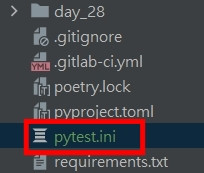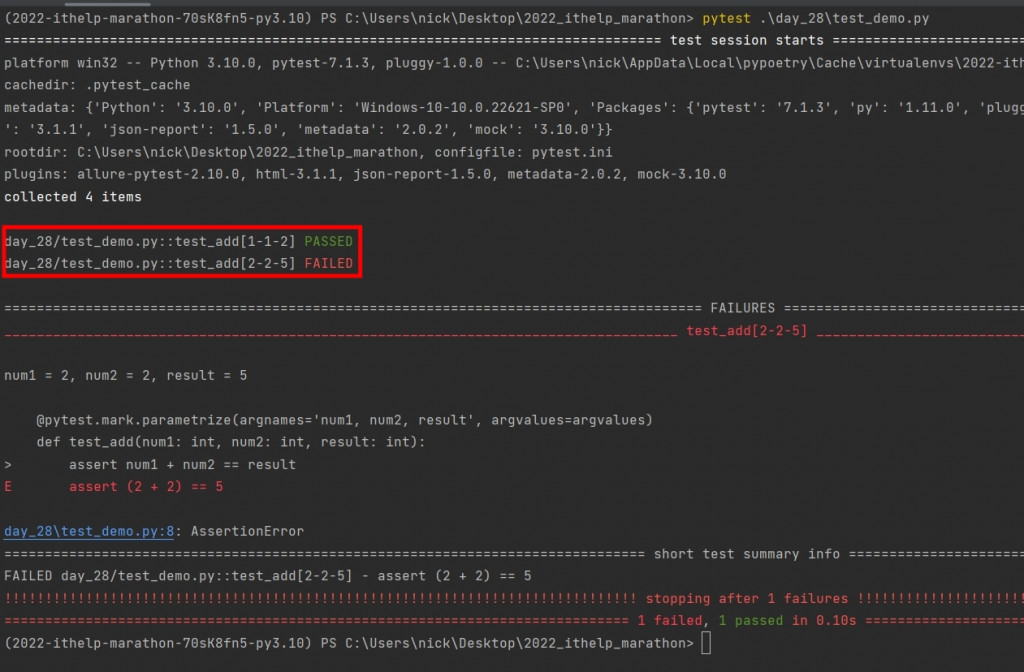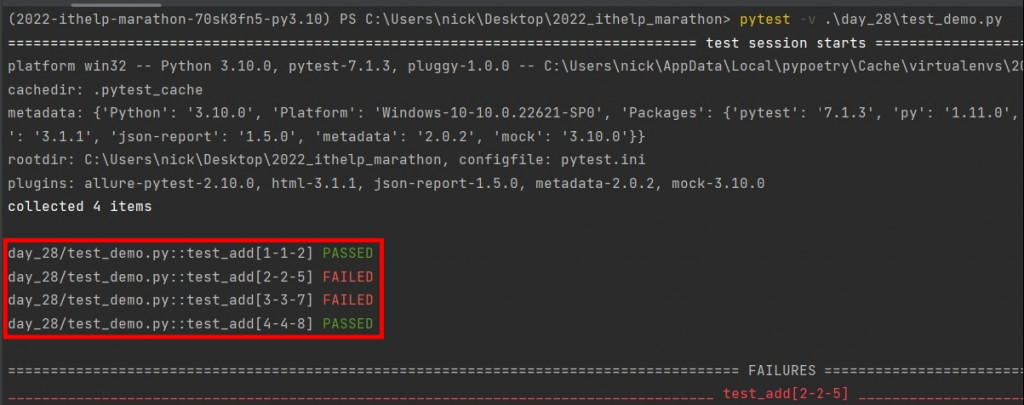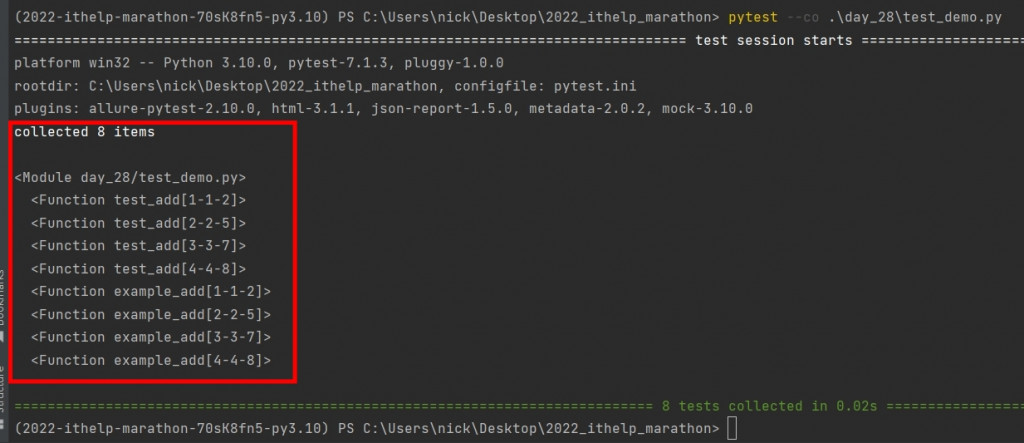每天的專案會同步到 github 上,可以前往 這個網址 如果對於專案有興趣或是想討論一些問題,歡迎留言 OR 來信討論,信箱為:nickchen1998@gmail.com
今天我們要來介紹如何客製化自己的 pytest,透過設定 pytest.ini 即可讓我們進行一些簡單的客製化,讓 pytest 更符合我們的需求
透過設定 pytest.ini 我們可以達到每次執行 pytest 時,會自動帶入指定的參數,例如:-s、-v ...
於整個專案最外層建立 pytest.ini 檔案

編輯 pytest.ini
下面的範例當中,我們設定了在使用 pytest 時會自動帶入 -s、-v 參數,並且設定當發生一次錯誤時就會停止測試
[pytest]
addopts = --maxfail=1 -s -v
建立測試程式
可以看到下面的範例當中,我們利用參數化的方式建立了四次測試
import pytest
argvalues = [[1, 1, 2], [2, 2, 5], [3, 3, 7], [4, 4, 8]]
@pytest.mark.parametrize(argnames='num1, num2, result', argvalues=argvalues)
def test_add(num1: int, num2: int, result: int):
assert num1 + num2 == result
結果展示
可以看到下圖執行結果當中,pytest 只有執行了兩次測試,並且其中一次為錯誤
正常來說應該會有四次的測試結果,下圖為沒有設定 pytest.ini 時的情況,pytest 就成功執行了四次測試並且其中兩次為錯誤
pytest 預設會自動蒐集開頭為 test 的 function,當然這個部份我們也可以透過 pytest.ini 來進行設定
編輯 pytest.ini
[pytest]
python_functions = test_* example_*
建立測試程式
下方利用參數化的方式建立兩個測試函式,總共數量會是八個測試,並分別用 test_ 開頭以及 example_ 開頭
import pytest
argvalues = [[1, 1, 2], [2, 2, 5], [3, 3, 7], [4, 4, 8]]
@pytest.mark.parametrize(argnames='num1, num2, result', argvalues=argvalues)
def test_add(num1: int, num2: int, result: int):
assert num1 + num2 == result
@pytest.mark.parametrize(argnames='num1, num2, result', argvalues=argvalues)
def example_add(num1: int, num2: int, result: int):
assert num1 + num2 == result
利用 pytest --co 觀察蒐集到的測試函式數量,可以看到成功蒐集到八個測試

透過閱讀 官方文件 可以知道更多 pytest.ini 相關的設定,讓 pytest 測試更加客製化
